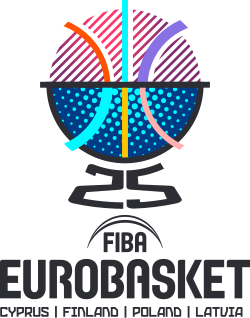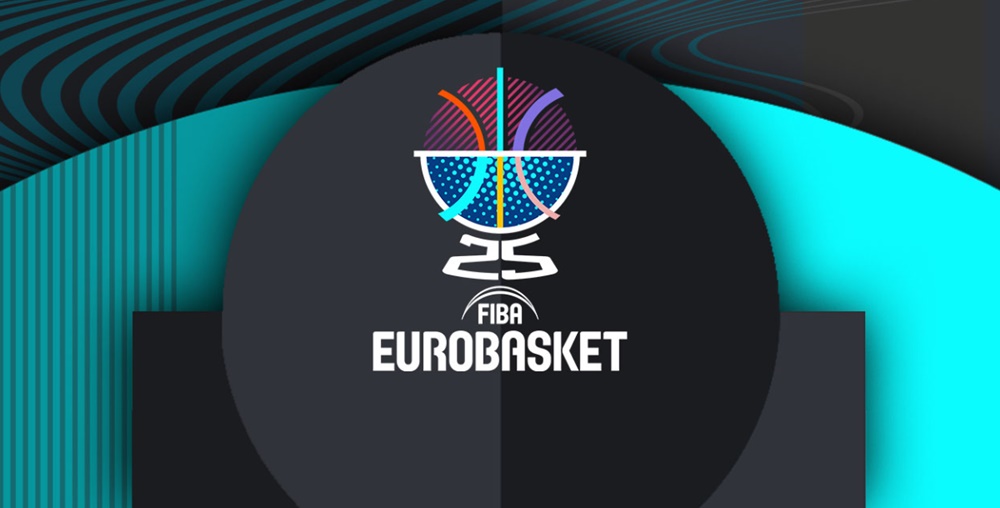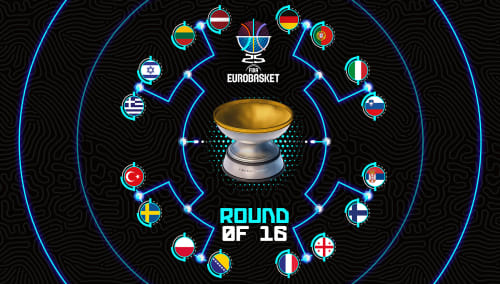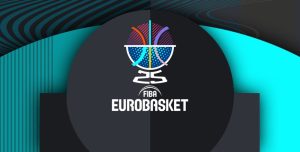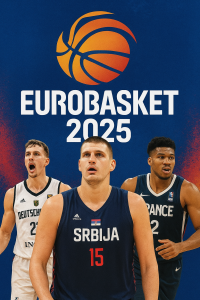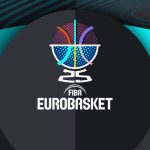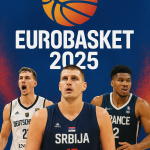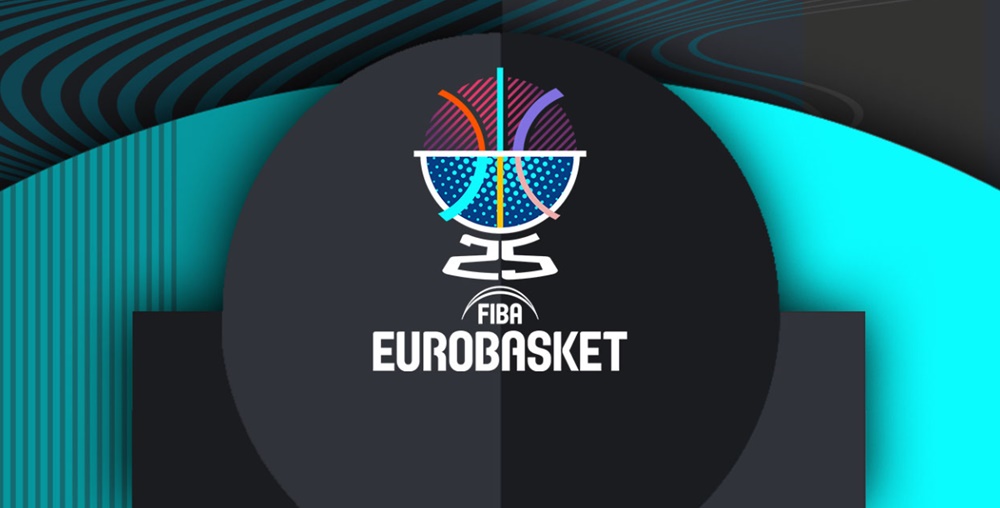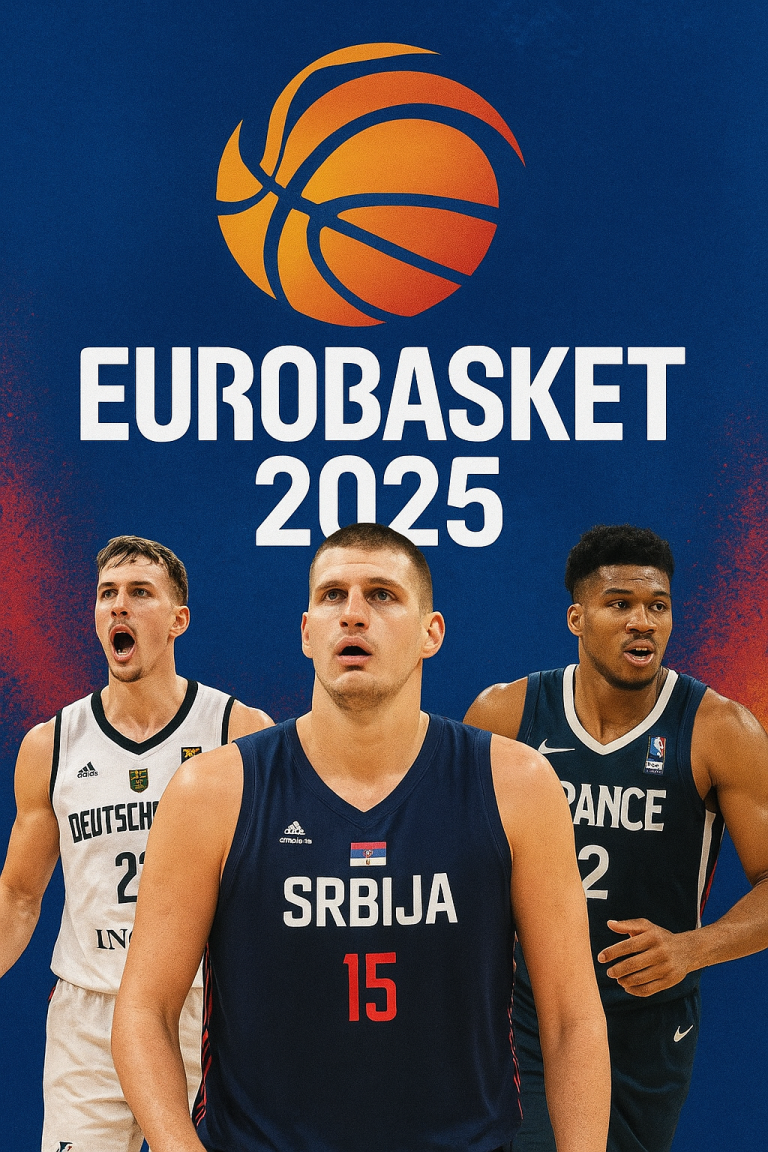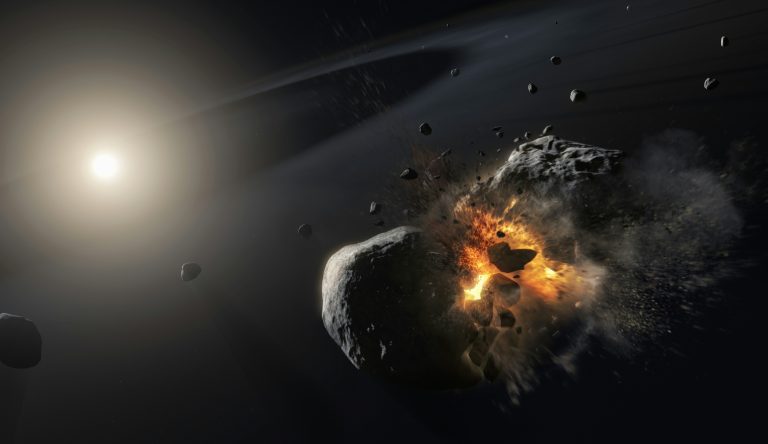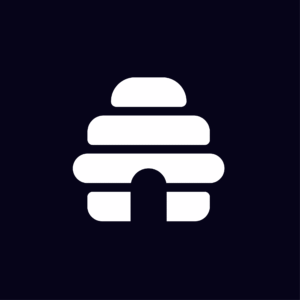Introduction
EuroBasket 2025 stands as one of the most unpredictable and talent-laden continental championships in recent basketball history. As the tournament enters the high-stakes knockout phase in Riga, Latvia, basketball fans, analysts, and bookmakers are grappling with a changing power dynamic. The elimination of reigning champions Spain in the group stage—a first since 1995 for defending title holders—throws open the field for new and old powers alike.
This report delivers a deep, evidence-backed analysis of the teams most likely to win EuroBasket 2025, focusing on the heavyweights—Serbia, Germany, France, Greece, and Slovenia—while highlighting dark horse contenders such as Turkey, Georgia, and Bosnia and Herzegovina. Drawing on web-based data including expert opinion, power rankings, betting odds, team and player statistics, as well as bracket pathways, the analysis is structured to provide clear, paragraph-driven insights and rigorous comparisons.
Tournament Context and Current State
With the group stage concluded on September 4th, 16 teams remain in contention for the title. The knockout bracket, seeded by group-stage placement, will determine who survives each single-elimination round en route to the final on September 14, 20254. The most notable group-stage event was Spain’s elimination after a 2-3 record in Group C, opening the door for a new champion.
Of the favorites, Germany and Turkey are the only teams that went undefeated (5-0) in the preliminary phase, with Serbia taking a close second in Group A due to a loss to Turkey. Greece, France, and Slovenia each navigated major group-stage challenges, while under-the-radar squads like Georgia and Bosnia have proven capable of upsets.
Betting Odds and Expert Consensus
Outright Winner Odds (Via Multiple Bookmakers)
| Team | Odds (Decimal) | Implied Probability | Key Web Sources |
|---|---|---|---|
| Serbia | 2.0 – 3.75 | 27%-50% | 7 |
| Germany | 2.0 – 6.5 | 15%-50% | 7 |
| France | 5.0 – 9.0 | 10%-20% | |
| Greece | 10.0 – 11.0 | 9%-10% | |
| Slovenia | 12.0 – 30.0 | 3%-8% | 8 |
| Turkey | 7.5 – 20.0 | 5%-13% | 7 |
| Lithuania | 17.0 – 18.0 | 5%-6% | 7 |
| Georgia | 81.0 – 100.0 | ~1% | 7 |
| Bosnia and Herzegovina | 67.0 – 100.0 | ~1% | 7 |
These odds, updated through early September, consistently position Serbia and Germany as co-favorites, often separated only by decimal points. France and Greece form the next tier, with Slovenia, despite its superstar firepower, trailing due to roster questions and group play results. Turkey and Lithuania are the best of the dark horses, while Bosnia and Georgia are extreme long shots but not without upset potential.
Power rankings from FIBA, EuroHoops, and BasketNews largely mirror the odds, with Germany recently overtaking Serbia in several expert consensus updates due to perfect group play and overall roster depth.
Team-by-Team Analysis
Serbia: The Nominal Favorite Under Pressure
Group Stage and Knockout Path
Serbia posted a 4-1 record in Group A, finishing behind an unbeaten Turkish side after a narrow 95-90 defeat in their group decider11. Despite this, Serbia’s margin of victory in other games was huge (average +13.2), including a 98-64 demolition of Estonia that set new team assist records. Serbia’s roster, led by Nikola Jokić (three-time NBA MVP), remains the envy of Europe in terms of all-around basketball IQ, height, and depth.
With the second seed, their Round of 16 matchup pitted them against a dangerous Finnish team—led by Lauri Markkanen—and surprisingly, Serbia fell to Finland, 92-86, marking one of the upsets of the knockout openers. Jokić delivered a monster 33-point, 8-rebound performance, but Finland’s hot shooting and disciplined playbook carried the day. This early exit puts a significant dent in Serbia’s championship hopes, but it is important to analyze why Serbia came into the knockouts as such a heavy favorite.
Roster Strength and Statistical Leaders
Serbia entered the tournament with a core featuring Nikola Jokić, Bogdan Bogdanović, Nikola Jović, and rising star Nikola Topić. The 12-man squad retained most of its Olympic silver medalists, supplemented by Washington Wizards’ big man Tristan Vukčević. Notably, some seasoned names such as Vladimir Lučić were absent due to injury or personal withdrawal, slightly reducing Serbia’s bench experience but not its first-unit power.
Statistically, Serbia has been elite on both ends. Jokić spearheads scoring (22.3 PPG in the group stage), rebounding (9.0 RPG), and remains among the assists leaders. Defensive specialists like Stefan Jović and Aleksa Avramović provide backcourt steel, with the offense further buttressed by the versatile Vasilije Micić. Serbia delivered the most assists in an opening game (32), signaling exceptional ball movement and coaching methodology.
Expert Analysis and Odds
Bookmakers gave Serbia the lowest odds to win before the knockouts (as low as 2.0 or +160), reflecting trust in their talent and tournament pedigree. Their knockout path, prior to the surprising exit, was projected as one of the toughest—likely facing France and then Germany en route to the final, which most analysts considered the most difficult possible progress amongst the contenders. Despite falling to Finland, Serbia’s foundation, driven by Jokić’s production and leadership, means they’ll remain perennial favorites when not upset by focused underdogs.
Strengths and Weaknesses
- Strengths: Elite star power, NBA pedigree, versatile bigs, depth in playmaking, elite team passing, and tournament coaching.
- Weaknesses: Occasional defensive lapses, heavy reliance on Jokić for offensive initiation, and some lack of dynamic wing scoring depth due to absences.
Serbia’s unexpected round-of-16 loss ranks as the biggest shock of the tournament, but their prior form and statistical dominance must still be factored into any holistic event analysis.
Germany: Undefeated Momentum and Roster Depth
Group Stage and Knockout Path
Germany’s 5-0 record in Group B is unmatched among the traditional Western European powers5. Their run included blowout wins with an eye-popping +164 point differential (529 scored, 365 allowed). Standout victories came against fellow playoff qualifiers Lithuania and Finland, and they closed group play with a one-sided 91-61 win over Finland.
In the round of 16, Germany smoothly dispatched Portugal (85-58), underlining their defensive dominance and efficient scoring from multiple positions. Their reward is a projected quarterfinal clash against the winner of Italy and Slovenia, neither of which managed more than three wins in their own groups.
Roster Strength and Statistical Leaders
This German squad, fresh from a medal at the Tokyo Olympics and a FIBA World Cup title, is stacked: Dennis Schröder, Franz Wagner, Daniel Theis, and Johannes Thiemann headline a robust, NBA-experienced core. Wagner leads in both points (21.6 PPG) and efficiency, while Theis controls the boards and provides paint defense. Schröder, as the team’s engine, is dishing 6.2 assists per game and is one of two players averaging over 20 points in the German lineup.
One crucial improvement has been Germany’s bench depth and adaptability, with shooting from Maodo Lo and Justus Hollatz ensuring no letup when starters rest. The squad is driven by coach Gordon Herbert, widely praised for his modernization of Germany’s offensive and defensive systems.
Expert Analysis and Odds
Odds have shortened considerably for Germany as the tournament progressed—now as close as 2.0 (joint favorites with Serbia) and no longer a dark horse6. FIBA’s latest power rankings put Germany at the very top, primarily due to their undefeated run and point differential.
- Strengths: Bulletproof team identity, elite two-way wings, coaching stability, NBA experience throughout roster, adaptable offense, and strong defense.
- Weaknesses: Occasional shallow paint rotation with Moritz Wagner absent, risk of hot-and-cold perimeter shooting stretches.
Germany’s path to the semifinals is less hazardous than Serbia’s or France’s, cementing them as a formidable favorite.
France: Deep, Young, and Adaptable
Group Stage and Knockout Path
France went 4-1 in the group phase, finishing atop Group D, notably defeating Slovenia (103-95) and Israel (82-69). Their only loss came in a relatively meaningless late-stage contest, and they bounced back with an emphatic rout of Iceland (114-74), reinforcing their status as a perennial powerhouse.
In the round of 16, France will take on Georgia, who, while dangerous, do not possess the same NBA pedigree or proven tournament depth.
Roster Strength and Statistical Leaders
France’s squad is without numerous headline stars, including Victor Wembanyama, Rudy Gobert, and Evan Fournier, due to health or retirements14. The torch has been passed to a youthful yet experienced group led by Guerschon Yabusele, Zaccharie Risacher (the 2024 No. 1 NBA draft pick), and NBA lottery pick Alexandre Sarr. They are supported by Elie Okobo (AS Monaco) and versatile wing Isaia Cordinier.
Statistically, France is balanced: Yabusele leads scoring at 14.0 PPG, while Okobo chips in 13.4 points and 5.4 assists per game. Rebounding comes by committee, although the absence of elite rim protection could surface as a weakness in deeper rounds.
Expert Analysis and Odds
Despite their short-handedness, bookmakers still place France among the top three favorites, usually around 5.5 to 9.0 on the decimal scale, translating to a 10-20% probability to win outright. France’s clear selling point is a deep rotation of NBA and EuroLeague talent accustomed to high-pressure international play.
- Strengths: Next-generation NBA talent, two-way versatility, disruptive perimeter defense, structured system from coach Vincent Collet.
- Weaknesses: Lack of premium size at the five, missing multiple franchise players, possible trouble with bigger teams like Serbia or Germany.
Given their performance and pathway, France’s upside remains substantial, especially if their next-gen leaders continue maturing under pressure.
Greece: Giannis-Led Resurgence and Tournament Upsetters
Group Stage and Knockout Path
Greece finished first in Group C with a 4-1 record, highlighted by a crucial victory over defending champs Spain (90-86) to eliminate them from further contention15. Greece leaned heavily on Giannis Antetokounmpo, who produced one of the tournament’s finest games against Spain, posting 25 points, 14 rebounds, and 9 assists, nearly a triple-double. Greece’s only group defeat was a narrow contest against Bosnia and Herzegovina.
In the round of 16, Greece faces Israel—an athletic but relatively inexperienced group, making Greece strong favorites to progress. Their quarterfinal is projected to be against the winner of Lithuania and Latvia, two challenging but not elite-caliber squads.
Roster Strength and Statistical Leaders
The Greek squad is crafted around Giannis, supported by three-point sniper Tyler Dorsey, experienced point guard Kostas Sloukas, and a supporting cast featuring Nick Calathes, Kostas Papanikolaou and others. Dorsey (14.8 PPG) and Sloukas (10+ points, 6 assists in key matches) provide needed perimeter balance.
Giannis leads all major metrics for Greece: 27.7 PPG (2nd in the tournament), 14+ RPG, and strong passing and defense16. Dorsey’s timely three-point shooting (over 48% from deep against Spain) poses an inside-outside threat that could trouble less disciplined defensive teams.
Expert Analysis and Odds
Bookmakers set Greece’s odds at 10.0 to 11.0, placing them behind only the top trio of Serbia, Germany, and France7. For expert consensus, FIBA and other analysts put Greece fourth in the final power rankings entering the knockouts, driven in large part by their Spain upset and Giannis’ two-way impact.
- Strengths: MVP-caliber leader, rebounding and interior athleticism, seasoned perimeter threats, improved defense in crunch time.
- Weaknesses: Roster thins after top five, bench inconsistencies, defensive lapses against spread offenses, dependence on Giannis staying healthy.
If Giannis avoids injury and foul trouble, Greece’s bracket draw allows them to potentially avoid both Serbia and Germany until the semifinals or final, a significant advantage on paper.
Slovenia: Luka Doncic’s One-Man Army or True Contender?
Group Stage and Knockout Path
Slovenia’s EuroBasket 2025 campaign has been turbulent. Starting slowly with consecutive warmup losses and a shaky early group-stage showing, the team rebounded in Katowice, Poland, stringing together three straight wins to close with a 3-2 record and qualification for the knockouts. Luka Doncic continues to dominate, highlighted by a near triple-double (37-11-9) in the win over Israel.
Slovenia faces Italy in the Round of 16, a formidable but beatable opponent. If successful, they would likely run into Germany in the quarterfinals, potentially spelling the end of their run without substantial improvement in team defense and depth contributions.
Roster Strength and Statistical Leaders
Led by the transcendent Luka Doncic (Los Angeles Lakers, NBA), Slovenia stacks up poorly behind him, missing Vlatko Cancar, Josh Nebo, and others due to injuries or personal choice. Doncic leads all EuroBasket scorers (32.4 PPG), is top ten in rebounds (8.0 RPG), and the tournament leader in assists (8.4 APG) and steals (3.2 SPG).
Klemen Prepelic is the team’s secondary scorer (10 PPG), and Alen Omic anchors the glass, but neither can significantly relieve the attention on Doncic. The lack of a stabilizing second star puts immense pressure on Luka to do everything, evidenced by his double-digit usage spikes compared to other superstars.
Expert Analysis and Odds
Oddsmakers put Slovenia in the second or third tier of favorites (12.0 to 30.0 range), reflecting Doncic’s world-class ability but serious depth concerns8. Expert consensus is less bullish, ranking Slovenia just within the top ten due to the group-stage struggles and their tough anticipated bracket path—possibly needing to beat Italy, Germany, and then Serbia or France to reach the final.
- Strengths: Doncic’s individual brilliance, clutch offense, experience from the 2017 EuroBasket win.
- Weaknesses: Absence of frontcourt depth, subpar defense, overreliance on Doncic, lack of NBA-caliber backup stars.
Slovenia’s ceiling is “tournament-destroying” if Luka finds a hot hand and supporting shooters step up, but their floor is a quick knockout against a deeper foe.
Dark Horses and Upset Potential
Turkey: Surprise Group Winners and On the Rise
Turkey’s unbeaten 5-0 group run, punctuated by a 95-90 win over Serbia, marks them as the breakout story of the tournament’s first week. Alperen Sengun and Shane Larkin anchor a roster that combines NBA talent with EuroLeague experience, and Turkey’s win against Serbia forced the latter into a tougher knockout draw.
With a round of 16 draw against Sweden (a clear underdog), Turkey’s path to the quarterfinals is direct. After that, they face Poland or Bosnia, before possible meeting with Greece in the semifinals. Their bracket is among the softest of all favorites, massively boosting their upset odds.
Odds have narrowed for Turkey into the 7.5–20.0 zone, and analysts have frequently highlighted them as the “team to watch” if they stay healthy.
Georgia: Frontcourt Power, Short Roster
Georgia qualified fourth in Group C, aided by a big win over Spain (83-69), and are now the trending dark horse. Under the leadership of coach Ilias Zouros and fronted by NBA/Euroleague bigs Tornike Shengelia and Goga Bitadze, Georgia’s power game and starting five are highly respected.
However, coaches and experts stress the team’s short rotation—the starting five can hold against any side, but sustained tournament play may drain their legs. The betting markets (81–100.0 odds) reflect the risk of fatigue, but Georgia is a credible threat to knock off an elite if overlooked.
Bosnia and Herzegovina: Jusuf Nurkic Brings Belief
Bosnia finished 3-2 in a stacked Group C, defeating Cyprus, Georgia, and notably Greece, earning a showdown with Poland in the knockout opener. Jusuf Nurkic is the clear team leader, delivering a near double-double average and showing his NBA pedigree.
Odds place Bosnia as an extreme long-shot (67–100.0), but their ability to disrupt any single elimination game makes them a feared dark horse. Bosnia’s first-round loss to Poland, however, confirmed their limitations, but their group-stage performance validated their place among the most dangerous of the lower seeds.
Key Metrics Comparison Table
| Team | W-L (Group) | Point Diff. | Best Player(s) | Top Scorer’s PPG | Betting Odds (Dec.) | Quarterfinal Path Difficulty |
|---|---|---|---|---|---|---|
| Serbia | 4-1 | +66 | Nikola Jokic | 22.3 | 2.0 – 3.75 | France/Germany (Extremely Tough) |
| Germany | 5-0 | +164 | Wagner/Schröder | 21.6/21.0 | 2.0 – 6.5 | Italy/Slovenia (Tough) |
| France | 4-1 | +100 (est.) | Yabusele/Sarr/Risacher | 14.0/13.5/10.2 | 5.0 – 9.0 | Georgia, then Serbia/Germany (Tough) |
| Greece | 4-1 | +78 | Giannis Antetokounmpo | 27.7 | 10.0 – 11.0 | Israel, then LTU/LAT (Medium) |
| Slovenia | 3-2 | Slightly + | Luka Doncic | 32.4 | 12.0 – 30.0 | Italy, then Germany (Very Tough) |
| Turkey | 5-0 | +100 | Sengun/Larkin | 21.6/23.0 (est.) | 7.5 – 20.0 | Sweden, POL/BIH, then Greece (Soft) |
| Georgia | 2-3 | –19 | Shengelia/Bitadze | 27.0/21.0 (est.) | 81.0 – 100.0 | France, then Serbia (Very Tough) |
| Bosnia | 3-2 | 0 | Jusuf Nurkic | 16.4 | 67.0 – 100.0 | Poland, then Turkey (Medium) |
Each metric here derives from official score reports and aggregator data15.
Key Players Impact Analysis
Nikola Jokić (Serbia): No European player is more impactful. Jokić leads Serbia in all major metrics, and his high usage rate drives both half-court and transition offense. His ability to elevate teammates is clear—team assist rates and shooting percentages spike with him on the floor. However, as the Finland game proved, even MVP-level performances can be neutralized if the team’s defensive edge slips.
Franz Wagner & Dennis Schröder (Germany): This duo’s dynamism underpins Germany’s offense. Wagner, in particular, is the tournament’s most efficient forward, and Schröder’s blend of scoring and playmaking keeps opponents off balance. Daniel Theis provides frontcourt muscle, critical for tough defensive stands.
Giannis Antetokounmpo (Greece): His two-way presence almost guarantees Greece a shot in any contest. Giannis adds elite rim protection, rebounding, and is the best in transition in the field. When supported by effective three-point shooting (Dorsey, Sloukas), Greece’s offense is top-five.
Luka Doncic (Slovenia): Doncic’s historic individual stats (tournament top scorer) see him bear one of the highest usage rates in EuroBasket history. His ability to draw double teams and create for shooters like Prepelic is Slovenia’s only hope against deeper foes. Fatigue and foul trouble are his only real kryptonite.
Guerschon Yabusele, Zaccharie Risacher, Alexandre Sarr (France): This young core is peaking at the right time. Yabusele is France’s anchor, while Risacher and Sarr are the future, already making major contributions across the box score. Their development has softened the blow of missing veteran stars.
Alperen Sengun & Shane Larkin (Turkey): Sengun is among the best centers outside the NBA, mixing scoring and rebounding at a high level, and Larkin’s experience from the EuroLeague/Team USA system gives Turkey an on-court general.
Goga Bitadze & Tornike Shengelia (Georgia): This pair is among the best starting frontcourts in the competition. Their physicality will be key to any upset Georgia can engineer.
Quarterfinal and Finals Paths: The Bracket Factor
- Serbia/Fra/Ger Path: Serbia’s side of the bracket was projected to be the toughest, likely running into France and Germany even before the final. Germany, by contrast, avoided Serbia until the semifinals or final, lending greater probability to a deeper run.
- Turkey and Greece Path: Turkey’s route remains the softest among top teams, avoiding Serbia and Germany until the final, provided upsets do not upend the bracket.
- France and Greece: Both face moderate quarterfinals, with France set to play Georgia and Greece facing Israel, thus maximizing their chance to advance until deeper rounds.
- Slovenia: Slovenia got possibly the hardest path—likely needing to beat both Italy and Germany just to reach the semifinals.
Expert Power Rankings and Consensus
The consensus view from FIBA, EuroBasket expert panels, SmartBettingGuide, and major betting sites is as follows:
- Germany – Undefeated, best differential, deepest roster.
- Serbia – Still widely respected despite shock loss, MVP leader, but bracket danger.
- France – Deep, balanced, but questions on star absences.
- Greece – Giannis-driven, gritty, with friendly bracket.
- Turkey – Momentum and bracket, but at least one step behind top four.
- Slovenia – Doncic-dependent, capable of huge upsets but flawed otherwise.
Georgia, Bosnia, and Latvia are usually cited as “wild cards” but lag far behind the elite core.
Final Prediction: Who Is Most Likely to Win?
All metrics, power rankings, and betting markets converge on a clear conclusion: Germany has become the team with the best chance to win EuroBasket 2025 as the tournament enters the quarterfinals.
The core factors driving this assessment:
- Roster Depth and Health: Germany combines a healthy full roster, elite scoring, versatile defense, and battle-tested NBA players.
- Group Stage and Knockout Dominance: Undefeated play and massive point differential signal consistency.
- Bracket Advantage: Germany avoids a true superpower until at least the semifinals, giving them a statistically easier path.
- Expert and Odds Consensus: FIBA and EuroHoops now rate Germany number one, with betting markets bringing their odds to parity with Serbia or shorter in some places.
Serbia, despite entering as favorites, are now eliminated after an upset loss to Finland, demonstrating that even the best can be toppled in single-elimination play. France and Greece remain close behind, particularly if Giannis stays healthy or France’s youth keep improving. Turkey, thanks to their favorable draw and high morale, is the most likely dark horse to spoil an all-favorites final.
If one had to project a most probable final without upsets, it would now be Germany vs. Greece or France, with Germany slightly favored due to their cohesion, healthy depth, and athleticism. Luka Doncic’s Slovenia, while a threat, would need a support miracle to survive Germany and then likely Serbia or France in the latter rounds.
Conclusion
EuroBasket 2025 is, more than ever, a tournament defined by preparation, star power, and bracket luck. Germany and Serbia began as co-favorites, but with Serbia’s shock elimination and Germany’s unmatched momentum, the balance has shifted. France and Greece, loaded with youth or MVP power and enjoying favorable bracket progressions, are next most likely, while Turkey and Slovenia represent the best of the rest if they catch fire.
Prediction: As of now, Germany is the safest bet to lift the EuroBasket 2025 trophy, with France and Greece playing spoiler and Turkey looming should the bracket break their way. However, as every round has shown, in single-elimination basketball, upsets are ever-present, and the race is truly wide open.
References
- 1www.fiba.basketballGreece eliminate reigning EuroBasket champions Spain
- 2www.fiba.basketballRound of 16 lineup, tip-off times set as Group Phase concludes
- 3en.wikipedia.orgEuroBasket 2025 knockout stage – Wikipedia
- 4basketnews.comEuroBasket 2025 playoff pairs and bracket – Basketnews.com
- 5www.eurohoops.netEurobasket 2025 full schedule, results and standings
- 6basketballsphere.comEuroBasket 2025 Odds Revealed: Serbia main favorite, Germany and France …
- 7www.oddschecker.comEuroBasket Betting Odds | Basketball | Oddschecker
- 8www.eurobasket.comBasketball News, Scores, Stats, Analysis, Standings
- 9basketballsphere.comEuroBasket 2025 – Power rankings: Round of 16 edition
- 10basketnews.comEuroBasket 2025 Power Rankings: Locks in Top 3 and bleak outlook for …
- 11www.blogdebasket.comEurobasket 2025: Turkey surprises Serbia and Germany continues …
- 12basketballsphere.comEuroBasket 2025: Serbia already setting records – Basketball Sphere
- 13www.fiba.basketballGermany Team Profile – FIBA EuroBasket 2025 | FIBA Basketball
- 14basketnews.comFrance EuroBasket 2025: roster, schedule and scores
- 15en.wikipedia.orgEuroBasket 2025 Group C – Wikipedia
- 16www.fiba.basketballCompetition Stats – FIBA EuroBasket 2025 | FIBA Basketball
- 17www.fiba.basketballSlovenia Team Profile – FIBA EuroBasket 2025 | FIBA Basketball
- 18www.eurobasket.comBasketball News, Scores, Stats, Analysis, Standings
- 19www.sportskeeda.com19www.sportskeeda.comPoland vs Bosnia and Herzegovina Game Player Stats
